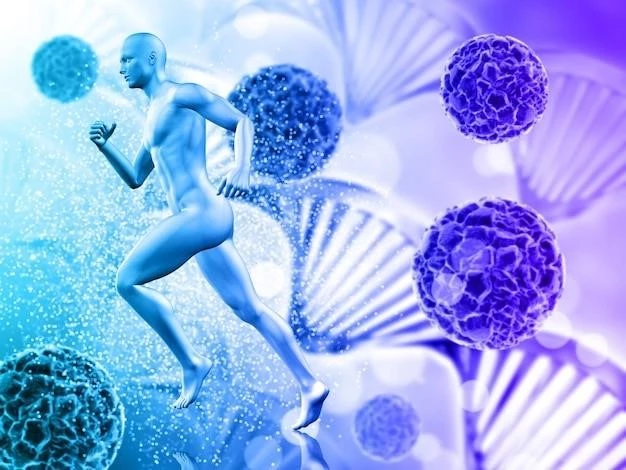Causes of Cystathionine Beta Synthetase Deficiency
Genetic Mutation in CBS Gene
Enzyme Dysfunction
a. Genetic Mutation in CBS Gene
Cystathionine Beta Synthetase Deficiency can be caused by mutations in the CBS gene. These genetic mutations affect the production of the enzyme CBS, leading to a deficiency in its function and the inability to properly metabolize homocysteine, resulting in elevated levels of this amino acid.
b; Enzyme Dysfunction
In Cystathionine Beta Synthetase Deficiency, enzyme dysfunction occurs when the CBS enzyme is not functioning properly. This dysfunction impairs the conversion of homocysteine, leading to its buildup in the body. As a result, the affected individual experiences various symptoms related to the accumulation of homocysteine.
Symptoms and Diagnosis of CBS Deficiency
a. Common Symptoms
Common symptoms of CBS deficiency include developmental delays, intellectual disability, osteoporosis, vision problems, and an increased risk of blood clots. Patients may also experience seizures, psychiatric issues, and heart problems. Timely diagnosis and intervention are crucial for managing these symptoms effectively.
b. Diagnostic Methods
Diagnostic methods for CBS deficiency involve blood tests to measure homocysteine levels, urine tests for sulfur amino acids, and genetic testing to identify mutations in the CBS gene. Imaging studies like MRI may be used to assess complications. Early diagnosis is key to implementing appropriate treatment strategies and preventing potential complications.
Treatment Options for Cystathionine Beta Synthetase Deficiency
a. Medication
Medication for CBS deficiency aims to manage symptoms and complications. This may include vitamin B6 supplements, betaine, and folate to regulate homocysteine levels. Regular monitoring and adjustments by healthcare providers are essential to ensure the effectiveness of the medication regimen and improve the patient’s quality of life.
b. Dietary Supplements
Dietary supplements play a critical role in managing CBS deficiency. Patients may benefit from supplements like B vitamins, methionine, and cysteine. These supplements help address nutrient deficiencies and support the body’s metabolic processes. A balanced diet combined with appropriate dietary supplements can aid in reducing symptoms and promoting overall health.
Genetic Inheritance Patterns of CBS Deficiency
a. Autosomal Recessive Inheritance
CBS Deficiency follows an autosomal recessive inheritance pattern, requiring both parents to pass on a mutated CBS gene for the child to develop the condition. Carriers of one mutated gene typically do not show symptoms, but when both parents are carriers, there is a 25% chance their child will inherit two mutated genes and have the deficiency.
b. Genetic Counseling
Genetic counseling is crucial for families affected by CBS deficiency. It provides information on the condition, inheritance patterns, and the likelihood of passing it on to future generations. Genetic counselors help individuals understand the risks, make informed decisions, and navigate available options for family planning and prenatal testing.

Management of Complications in CBS Deficiency
a. Cardiovascular Complications
Individuals with CBS Deficiency may experience cardiovascular complications like blood clots and atherosclerosis. Regular monitoring of cardiovascular health, lifestyle modifications, and medication management can help reduce the risk of these complications and improve overall cardiovascular well-being.
b. Neurological Complications
CBS Deficiency can lead to neurological complications such as seizures, developmental delays, and cognitive issues. Management strategies may include neurological assessments, medications to control seizures, and therapies to address developmental challenges. Early intervention and ongoing neurological care are essential for optimizing outcomes and enhancing quality of life.
Dietary Recommendations for Individuals with CBS Deficiency
a. Low Methionine Diet
A low methionine diet is recommended for individuals with CBS Deficiency to help manage their condition. This diet limits foods high in methionine, such as meat, fish, and dairy products, to control homocysteine levels. Including fruits, vegetables, and grains can provide essential nutrients while minimizing methionine intake and supporting overall health.
b. Nutritional Support
Nutritional support is essential for individuals with CBS Deficiency to maintain adequate nutrient levels and overall health. This may involve working with a healthcare provider or dietitian to develop a tailored nutrition plan that ensures proper intake of vitamins, minerals, and essential nutrients. Nutritional supplements may also be recommended to address specific deficiencies and support optimal well-being.
Research Advances in the Treatment of Cystathionine Beta Synthetase Deficiency
a. Gene Therapy
Gene therapy offers promising possibilities in the treatment of CBS Deficiency. By introducing genetic material to correct CBS gene mutations, gene therapy aims to restore enzyme function, regulate homocysteine levels, and alleviate symptoms. Ongoing research in gene therapy holds potential for innovative and targeted treatment approaches for individuals with CBS Deficiency.
b. Clinical Trials
Clinical trials play a vital role in advancing the understanding and treatment of CBS Deficiency. These trials evaluate new therapies, treatment approaches, and interventions to enhance patient outcomes. Participation in clinical trials offers individuals with CBS Deficiency access to cutting-edge treatments and contributes to the advancement of medical knowledge in managing this rare genetic disorder.
Support and Resources for Patients with CBS Deficiency
a. Patient Support Groups
Joining patient support groups can provide invaluable emotional support, shared experiences, and practical tips for individuals and families facing CBS Deficiency. These groups offer a sense of community, resources, and a platform for learning from others dealing with similar challenges. Connecting with fellow patients can help navigate the complexities of the condition and foster a supportive network.
b. Educational Materials
Educational materials on CBS Deficiency offer valuable insights into the condition, treatment options, and lifestyle management. These resources enhance understanding, empower patients to make informed decisions, and facilitate communication with healthcare providers. Access to up-to-date educational materials equips individuals and families with the knowledge needed to navigate the complexities of CBS Deficiency effectively.
